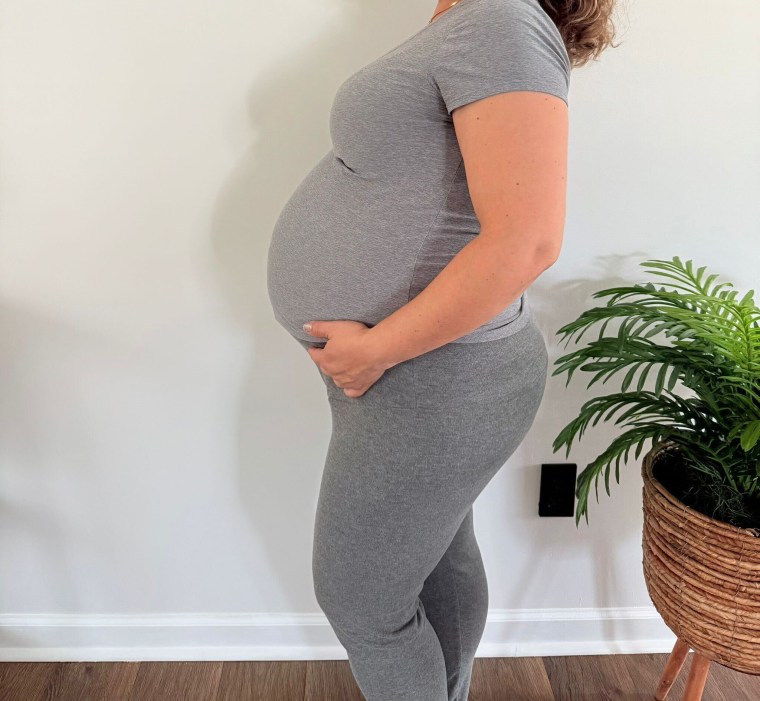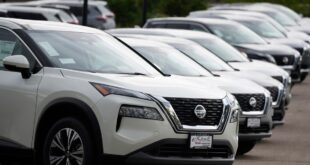
Two pregnant women, one in North Carolina and one in South Carolina, face potentially fractured paths for their babies after the Supreme Court limited judges’ ability to issue nationwide orders blocking the Trump administration’s plan to end birthright citizenship.
Trinidad and Monica, whose babies are due to be born in late July or early August, are Venezuelan asylum-seekers and plaintiffs in a lawsuit challenging President Donald Trump’s executive order limiting birthright citizenship.
The court’s decision did not settle whether Trump’s order restricting birthright citizenship is constitutional. But the recent decision could put Monica and her baby at risk when the child is born, because South Carolina was not among the 22 states that challenged Trump’s order. The ruling allows the order to go into effect on July 27 in the remaining 28 states.
“Last night, I couldn’t sleep thinking about all of this. It truly does bring so much uncertainty not knowing what’s going to happen to your baby,” Monica, who is in her mid 30s, told NBC News in Spanish. Monica and the other plaintiffs have remained anonymous out of concern of potential retribution in their immigration cases.
Under Trump’s plan, birthright citizenship would be limited to those who have at least one parent who is a U.S. citizen or permanent resident. The order also denies citizenship to children whose mothers are temporarily in the United States, including those visiting under the Visa Waiver Program or as tourists, or who are students and whose fathers are not citizens or lawful permanent residents.
That is at odds with the widely accepted understanding of the Constitution’s 14th Amendment, which grants citizenship to anyone born in the United States, with a few minor exceptions.
For now, all children born in the United States are U.S. citizens. Whether that changes on July 27 depends on litigation in the courts, the states where the children are born and how the Trump administration implements, if it is able to, its executive order to keep some newborns from automatically being U.S. citizens.
‘A lot of stress’
The Supreme Court decision left open the potential for class action lawsuits to block certain policies nationwide. Monica and Trinidad’s attorneys are seeking class action status for the case and want to bring on additional pregnant women from around the country.
Advocates told NBC News that allowing enforcement to go into effect would result in a fractured patchwork across the country — in some states, babies would be guaranteed birthright citizenship, and in others, they would be denied or their mothers would be forced to be identified as members of the critical legal cases against the government.
While members of the case are protected from their babies’ being denied birthright citizenship, the idea of needing to come forward to secure that right has panicked some pregnant immigrant women, advocates said.
“This causes a lot of stress, a lot of anxiety, especially for pregnant mothers, who have enough to worry about in the last days of their pregnancy — instead, they’re having to worry about the logistics and specifics of this order and what it really could do to their child, to their family,” said Conchita Cruz, a co-executive director of the Asylum Seeker Advocacy Project (ASAP), a membership organization dedicated to serving asylum-seekers in the United States. The group is part of the lawsuit challenging Trump’s order, and Monica and Trinidad are ASAP members.
“We have already seen what America would look like in the aftermath of this Supreme Court ruling — antebellum America. They had free states and slave states; we will soon have states with birthright citizenship and states without,” said DaMareo Cooper, a co-executive director of Popular Democracy in Action, a coalition that includes a plaintiff challenging the executive order.
The Justice Department declined to comment. The White House did not immediately respond to a request for comment about the Supreme Court’s decision, plans for the July 27 enforcement date and issues groups and plaintiffs have raised around birthright citizenship.
‘Terrified,’ uncertain of what’s next
The court’s decision last week restricted judges’ authority to block presidential orders nationwide, as opposed to just within their jurisdictions.
Because of where Monica lives, when her baby is born, she could need to identify herself at the hospital or afterward to officials as part of the birthright citizenship case for her baby to be afforded the constitutional right.

“There’s fear that we need to remain anonymous because we don’t know if they will retaliate against us, deport us in a way that’s unjust, take away my baby,” Monica said. “We will do what we have to do for our baby, but it’s all very complicated for us.”
Monica and her husband have finished preparing their baby’s room. “This is supposed to be something beautiful. It will be beautiful, but also that fear of not knowing what’s going to happen on the day of the birth never leaves me,” she said.
Meanwhile, just one state to the north, Trinidad’s baby will be born and will automatically be granted birthright citizenship.
“Thank God I am in a state where my baby will still be protected. But if I had been in another state where the order would go into place in 30 days, it would be tremendous torture,” Trinidad, who is in her early 40s, said in Spanish. “Being only a few weeks from giving birth, it would be really difficult.”
For women not yet a part of the lawsuits, the consequences would be even more dire, said Kursten Phelps, litigation counsel at the Tahirih Justice Center, a nonprofit organization offering legal and social services to immigrant women and girls.
Phelps said the Tahirih Justice Center has a client who is a pregnant Latin American immigrant in her 20s in Texas who is seeking legal status but has not been granted a decision yet. She and her husband are from different Latin American countries, further complicating the situation.
“If things hold as they are now, her child who is due this fall would likely not be considered a citizen when he’s born,” she said.
Phelps said the woman is terrified about what will happen if her son is born a noncitizen.
“She’s really stressed out, and her mind starts going to places like could my newborn son be deported? If they did, where would he get deported to? Is it going to be so bad that I should give my child up for adoption to sort of protect him?” she said.
The administration said in court Monday that it will not enforce its order for 30 days from June 26. The administration also has said it is preparing guidelines about how it will enforce the order.
Several legal challenges to the birthright citizenship order are moving through the courts. One is a class action that would protect all children born in the United States and their parents.
The League of United Latin American Citizens, among the first groups to challenge Trump’s executive order, has many plaintiffs in different states, said Juan Proaño, LULAC’s CEO.
LULAC is party to the class action lawsuit, and it is suing in Rhode Island.
Proaño said one client induced labor to deliver her child before it would be affected, adding that “we know there are more” mothers who are doing the same to ensure their children are citizens.
Worries over ‘statelessness’
Zain Lakhani, the director of migrant rights and justice at the Women’s Refugee Commission, said that if the order is allowed to go into effect in late July, “that creates not only just an enormous amount of chaos and fear and confusion for immigrant women themselves, but it also creates an enormous amount of confusion and chaos for hospital systems and for state administrators.”
“Just administratively, how to sort of manage this enormous amount of fracturing is a really considerable problem that we’re just not really prepared to have to operationalize, because that is not how constitutional laws and how our laws work,” she said.
Lakhani said another significant issue that implementing the order would raise is the creation of “a substantial statelessness problem.”
There are many countries the United States does not have diplomatic relations with, including Venezuela. Mothers like Monica worry their children would be born without U.S. citizenship and end up stateless as a result.
Other countries do not allow women to pass citizenship to their children, Lakhani said.
“Those children are at additionally heightened risk for statelessness,” she said. “We are basically creating this significant not only undocumented population, but stateless population.”
The Supreme Court still has to decide on the merits of the case. It could strike down Trump’s order as unconstitutional or uphold it.
Cruz said the women in their case have “a long-term fear that even if their child is born a U.S. citizen, in the long run, are they going to be able to retain that citizenship or not?”
“Even our plaintiffs, who you know have brought the lawsuit themselves and where there’s no question that their children should become U.S. citizens for now, are scared about that long-term,” she said.
Monica remains hopeful the final outcome will strike down Trump’s order.
“That’s what a democratic country does — it goes by the rights in the Constitution,” she said. “I come from a country where there is dictatorship, where the government goes above the laws or constitution. It reminds me of my country, and it’s very sad, because this is a country that is too extremely good to go above its laws.”
“We felt we could fight for our babies and the mothers all going through this,” she said. “It’s incredibly devastating and sad. If we can do this for our child’s rights, we will do it.”
 Latest World Breaking News Online News Portal
Latest World Breaking News Online News Portal






